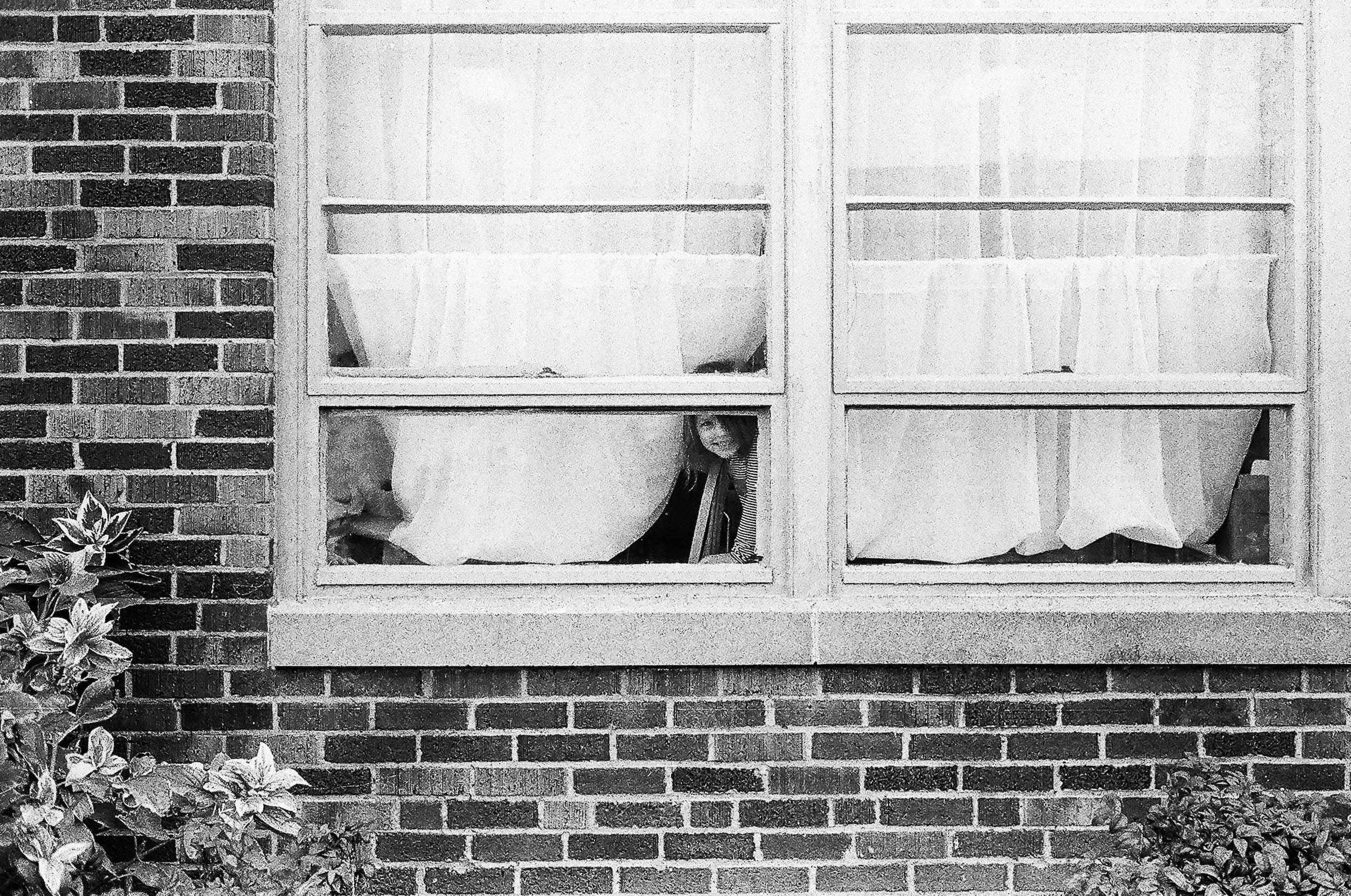Tell us how your journey with photography began
My earliest memories of photography take me all the way back to my elementary years. My father was a photographer and an avid collector of cameras, lenses, filters, adapters, etc. His gear had a habit of creeping into dressers and closets throughout the house, and the downstairs bathroom served as his make-shift darkroom. I remember being scolded on a couple of instances for trying to use a lens as a telescope, or opening the bathroom door while he was in the process of developing his most recent roll of special moments.
Eventually, I outgrew this stage of youthful ignorance and he began teaching me the basics of analog photography: how to load and wind the film, the exposure triangle, how to read light. I enjoyed it primarily for the reason that it gave my father and me a shared hobby; nothing makes a young daughter happier than knowing that her father is genuinely enjoying her company.
When I entered middle school, I was tested and subsequently qualified for a program that allowed me to go to an alternative school for one day per week. In this program, I had a multitude of interesting classes in which I could participate, and the first one I signed up for was photography. This school had a full darkroom...no more crouching over the bath tub! We would go on photo walks around the neighborhood and then return to the building to develop our film. I remember that the first photo I enlarged by myself was of a pinecone, one of my mother's favorite pieces of nature. It still hangs in my parent's house, flat light and all!
After that class, I took quite a hiatus from photography. I eventually took a job as a camera specialist for Best Buy while in college. That caused a small spark of renewed interest and I saved up to buy my first digital camera. The embers just smoldered there for a few years and through a couple of cameras until I had my first child. At that time, a full flame burst into existence and I allowed it to consume me. After a few years and another child, I took a step back from my fire; I didn't like the way it was burning both myself and my family out. It was at this time that I rediscovered film. My father and middle school program taught me the fundamentals of photography, but it was my children and travels that taught me the art, and reason, behind it.
Could you talk a little bit about your burnout and how finding film reignited your flame?
When I was shooting digital, I quickly fell for the temptations to both shoot everyday and to shoot more than necessary. Why not? It was free, after all, and my kids are so cute that surely my friends and family would like to see 50 pictures of them everyday. Having such quick and easy access to results certainly helped me master the technicals and experiment with more creative exposures. However, my images became a pretty ship without a rudder that was manned by a captain who couldn't read the winds or compass anyway. I drifted with the current and plucked ideas from the water surrounding me; baby in a basket? Sure! Make a heart with your hands? So original! Jumping silhouette? Killing it!
I floated along this way for a few years, blissfully ignoring the troubled clouds on the horizon. I was improving my skills and documenting my children's lives, so in my mind I had nothing to worry about. Then one day, I sat down to create an album and began clicking through our past year. With a growing sense of horror, I realized that I didn't remember the actual moment that I had captured. I couldn't feel my images because I wasn't a part of them when I pressed the shutter. What I could recall was my determination to direct my crew into their respective places in my frame, give me the desired emotion and expression as a rapid fired away, and then leave me alone as I retreated below deck to "fix" the images.
I retreated from photography for a few months after that storm crashed over me. I have the unfortunate tendency to philosophize myself into a melancholic stupor and almost every image I had taken lacked the depth that I desired, so I wallowed for longer than was reasonable. I finally forced myself to go over my own work and that of others to see what clicked with me. Eventually, I realized that I was drawn to the images that weren't perfect; the blurry ones, the limb chops, the crazy expressions. The ones that represented a moment caught on the fly, the ones that captured life being lived right at that second, technical perfection be damned. This was my life and if I wanted depth in my work, I needed to feel the wind and follow my heart. My ship finally had a course.
It took a few more months of shooting digitally and traveling internationally to finally find my way home again to film. After returning from a trip to Iceland, I had thousands of images to cull through and edit. I was proud of myself for staying more involved with my family while we explored the island, but the camera was still stuck to my face more than I would've liked. And I still haven't compiled an album. It's just too overwhelming. So on a whim, I purchased a Nikon F100 body for a little over $100, signed up for an online film class, and got hooked. I have since traveled to nine states in 3 months and brought only film, and the difference is incredible. I have never felt more present in my own life and felt so at peace with what I had created. Digital was my siren call, but film was my lighthouse beacon.
There's something like a billion photos on Flickr; how or why is photography important in the big picture, and then what is it's importance in your life?
I've really had to ponder this question for a couple of days, and I'm not even sure that I've come up with an acceptable answer. I feel that the inherent value in photography lies in its ability to capture a moment in time of a particular person's life. As photography has advanced, however, we've developed techniques and tools to tweak (or completely alter) the reality that originally presented itself in the frame. Photography now has the ability to preserve history or create a fantasy. I think which direction a photographer takes is just personal preference, although I do believe that images based on fact rather than fiction will be of more value to our descendants. I personally love poring over vintage pictures and imagining the time and place based on the visual clues given to me. Human history may be tumultuous and scarred, but also breathtaking and inspiring, and therefore I find photography to be an incredibly important medium with which to memorialize both our shortcomings and our progress.
As for its importance in my own life, I'm acutely aware of how short our time here really is. I honestly never expected to get married or have children; I had planned on spending my life traveling the world and "making a difference." Now that I have a husband in the Air Force and stay home to raise our two daughters, both my quotidian and globe trotting experiences have become even more precious than I could have ever imagined, and I have an overwhelming desire to capture them with raw honesty. My life is messy and unpredictable and an adventure. I have no desire to sugarcoat it or make it into something that it's not. Photography can capture the imperfections exceptionally well and if for some reason the scene cannot be accurately portrayed through my lens, then I just pick up a pen and paper (finding the time to write is a gift that film has inadvertently given me as well). I pick up the camera for my daughters, my husband, and myself, but consider it a bonus if others are moved or find value in my images.
Do you have any advice for photographers out there either about shooting film or finding their passions in photography?
As for advice for others in regards to shooting film, it would pertain to the foundation of this medium: have patience and go back to basics. Shooting analog is much more about the process; it's almost a form of meditation when I pick up the camera. It means that I've noticed something that I deem worthy of taking the time to make it a permanent fixture in my life story. Rather than taking the "spray and pray" approach of digital, I simply wait for the right moment. Maybe it happens, maybe it doesn't, but the result is just the icing on the cake. Being aware of what made me put the viewfinder to my eye in the first place gives me a glimpse into what I'm passionate about, what makes me tick.
Connect
Mandy is a film photographer who currently lives in Oklahoma and never stops planning out her family's next adventure. You can see more of her work and travels at her website www.amandajphoto.com or Instagram.





















